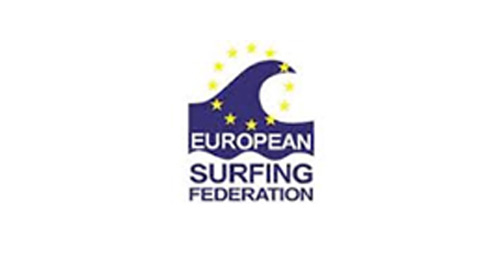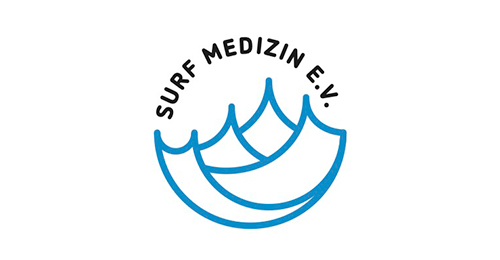

Surfing and Environment
Environmental degradation and environmental protection are frequently treated topics these days. Sport is no longer considered to be absolutely environmental friendly, since it has negative effects on the nature in many places. This begins with some inherently polluting sports and ends with the surfer, who litters the beach with cigarettes.
Especially for us surfers, an intact nature should be close to our hearts because, when surfing, we are closer to nature than hardly any other kind of sport.
In principle, each human being is responsible for his actions. If this is not reason enough for environmentally friendly behavior, you should at least protect the environment out of self-interest. Nobody wants to surf in waste water, and if reefs and sand banks fall victim to environmental degradation (death of corals, erosion of the dunes, construction work on reefs), there will be no more surfable waves!
Surfers belong to one of the largest groups of persons which are regularly at the beach and in the sea. Thus, the possibility of setting a good example is always present.
A very good opportunity for passing on information about our environment and also improving the situation is to organize "Beach clean up Days" in co-operation with surf schools, or also alone. On these days, the home spots are cleaned together.
The ocean - an endangered habitat
Every year, hundreds of thousands tons of waste are disposed of in the sea. This waste consists of organic waste water out of human dwellings and industrial waste products (a range of various chemical toxins and solid and liquid radioactive substances).
Within living memory, the sea has always served as garbage dump for mankind: Already in the antiquity things that were not needed anymore were sunk in the sea. The main reasons for this irresponsible contact with the largest ecological system of the planet are ignorance, naivety and, in addition, greed of gain. Naturally, it is much cheaper (at least if one does not consider the external costs), to discharge highly poisonous arrears into the next river, than to be responsible for an expensive storage and disposal. Meanwhile, this refuse disposal strategy leads to the fact that the entire habitat "sea" is threatened.
Nowadays, it is a well known fact that the uncontrolled and unrestricted waste disposal will get back at the waste producers one day. In the course of the food chain, the poisonous materials will come back to the humans in the end. The consumption of sea fish ensures, for example, that toxic materials, which the sea inhabitants take up with the water, will lead to serious health damage for humans in the long run.
Besides, the territorial waters and beaches in the moderate, subtropical and tropical degrees of latitude serve humans more and more as a retreat area, where they look for recovery, relaxation and adventure. The increasing contamination of the ocean leads to the fact that problematic (toxic) materials are taken up directly over the mouth and the skin. These materials can cause considerable damage to the human organism.
Rising number of beach users leads to:
- Larger need of accommodation and infrastructure (construction activity)
- Larger traffic load
- More waste, more waste water, more harmful substances
Possible actions for the improvement of the situation:
- Form car pools; take the train instead of the car / plane
- Choice of the destination (does it make sense to fly 15 hours for a 1 week vacation?)
- Waste avoidance, waste separation, save water
- Consider that with storms also waste, which was thrown away on the road, can be rinsed to the sea
- Also dispose of waste that was not produced by you, such as cigarette stubs or plastic bags, set a good example
- Frequently, good role models and awareness training make more sense than punishments - particularly in developing countries, ignorance is often the reason for the environmental pollution getting out of control!
Unfortunately we quite often often hear something like: "Being a surfer (and especially a landlocked surfer) we have to travel to get to places, so surfing as such is per se bad for the environment" - so it's game over anyway, let's not think about it and keep on doing what we have always been doing...
The "ecological footprint" measures our impact on the world. The bottom line: Who uses a lot of ressources in one part of life (e.g. traveling) but lives very sustainably in other areas of life (food, housing, shopping, means of transport, etc.) can still be "green" - give it a try!
Dunes and beaches form a functional border between land and sea. The dune works as a reservoir for the sand banks of the beach breaks. When there is a storm, the dunes are partly cleared away and the sand is washed to the sea, the large waves break further outside. With calm weather conditions, the sand washes back ashore.
The dune is kept together by plants. The smallest plants can be found in close proximity to the water, with distance also the size of the plants increases. Their size ranges from grass to trees. If now the sand is blown over the beach by the wind, it sticks to the plants and the dune develops. If these plants are scrunched or pulled out, the sand is carried further towards the mainland, the dunes become smaller, and, if they disappear, soon also the beach break will be a thing of the past.
Possible actions to improve the situation:
- only use the marked paths to the beach
- raise awareness

![[Translate to english version:] Surfen und Umwelt](/fileadmin/_processed_/d/d/csm_alone-1209186_1920_a29bfbeed1.jpg)
![[Translate to english version:] Surfer sind von einem intakten Lebensraum Ozean abhängig](/fileadmin/_processed_/7/6/csm_waves-928205_1920_9963c522be.jpg)
![[Translate to english version:] Beach-Clean-Up-Days](/fileadmin/_processed_/9/8/csm_surfboards-753417_1920_977937851b.jpg)














